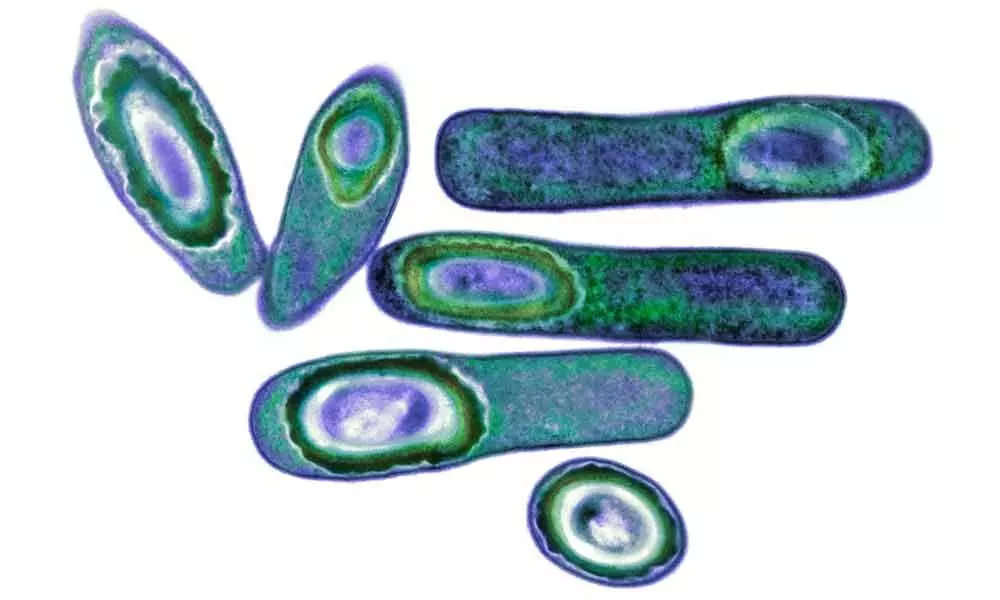Gut Infections Are Treated Using A Pill Made From Human Feces

A microbiome-altering therapy cleared recurrent infections with the potentially deadly bacterium Clostridium difficile.BIOMEDICAL IMAGING UNIT/SOUTHAMPTON GENERAL HOSPITAL/SCIENCE SOURCE
- Stool from a healthy donor, administered by colonoscopy, can aid in the restoration of a balanced community of gut microorganisms, allowing the infection to be defeated.
- A tablet containing bacterial spores obtained from human faeces has now passed a phase 3 study, clearing the road for the first authorisation of its nature.
Stool from a healthy donor, administered by colonoscopy, can aid in the restoration of a balanced community of gut microorganisms, allowing the infection to be defeated. Several firms are vying for regulatory approval in the United States to achieve the same effect with less invasive, more standardised medicines. A tablet containing bacterial spores obtained from human faeces has now passed a phase 3 study, clearing the road for the first authorisation of its nature.
Colleen Kelly, a gastroenterologist at Brown University is an investigator who was having trials of pills known as SER-109, but was not involved in the new efficacy of the study, he appreciated the measure as it help a lot. She mentioned that it is safe. She observed that infection transmission does not appear to be a very prevalent concern, even in severely immunocompromised patients. However, she claims that new FDA requirements have made donor screening more difficult for some medical institutes. In addition, reputable sources of the requisite stool preparations are becoming scarce in the United States. In February 2021, the main U.S. provider, the nonprofit stool bank OpenBiome, announced it was ceasing production, citing financial difficulties and the impending approval of FMT replacements.
Recurrent C. difficile infections, which seem to be common in elderly patients with some other health issues and often begin while antibiotics deplete their ordinary microbiomes, can be broken with FMT. According to Sahil Khanna, a gastroenterologist at the Mayo Clinic who has participated in prior SER-109 trials, FMT has been part of conventional practise for almost ten years. However, the transplant material, which originates from volunteers' intestines, is difficult to standardise.
In a few recent cases, patients have been infected with new illnesses from donor stool that was not properly screened. In a clinical trial unrelated to C. difficile, a man with a weak immune system succumbed after receiving stool containing antibiotic-resistant Escherichia coli bacteria.
Researchers said that the 182 respondents infected with C. difficile who were randomised to receive either SER-109 or a placebo after a standard course of antibiotics were included in the phase 3 trial, which used a higher dose and a more precise screening test. The study's 8-week follow-up was completed by 149 of them. Infection with C. difficile recurred in 40% of the placebo group but only 12% of the treatment group.
Kelly claims that the outcomes are comparable to those found with FMT. Many individuals prefer to avoid the pain of colonoscopies and will take a medication instead if one is available.
Meanwhile, according to von Moltke, Seres plans to submit an application for FDA approval of SER-109 in mid-2022. And a slew of rivals are hot on its tail. Rebiotix Inc., a microbiome company, declared last year that a phase 3 trial of its recurrent C. difficile treatment, a filtered stool product presented as an enema, had yielded positive results. Finch Therapeutics, an OpenBiome spinoff, announced success in a phase 2 study of its product, a tablet comprising freeze-dried faeces, in October 2021. In addition, Vedanta Biosciences has completed a phase 2 trial of a C. difficile therapy that uses eight individually chosen bacteria strains produced in cell banks rather than isolated from stool.
Next Story














